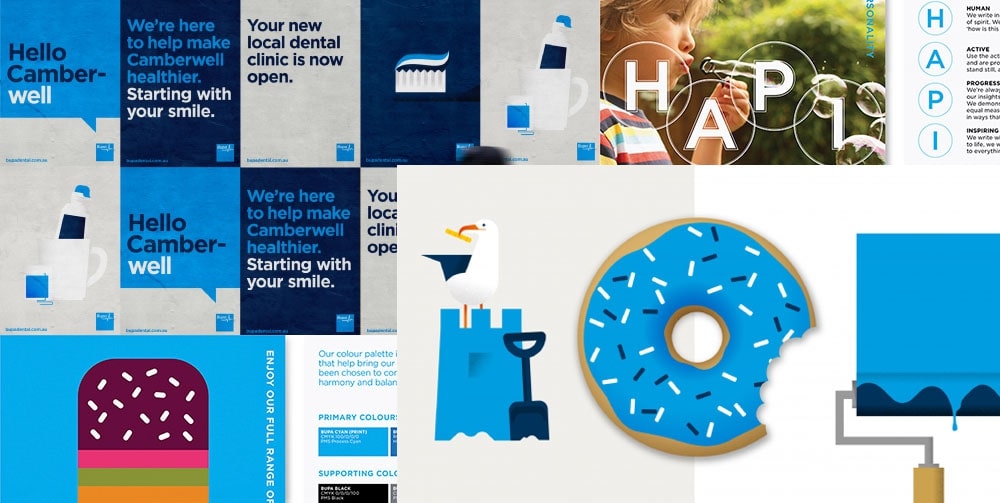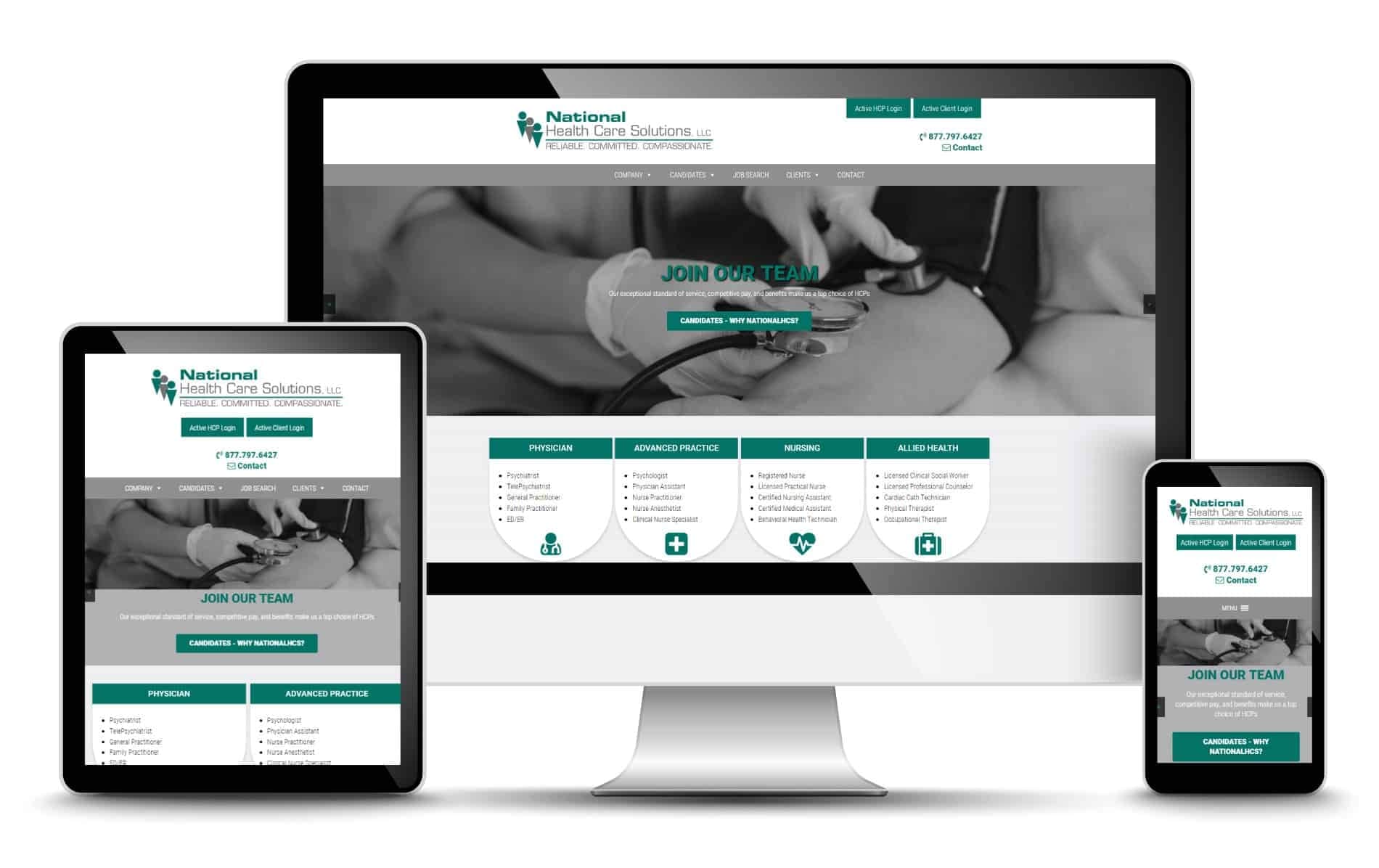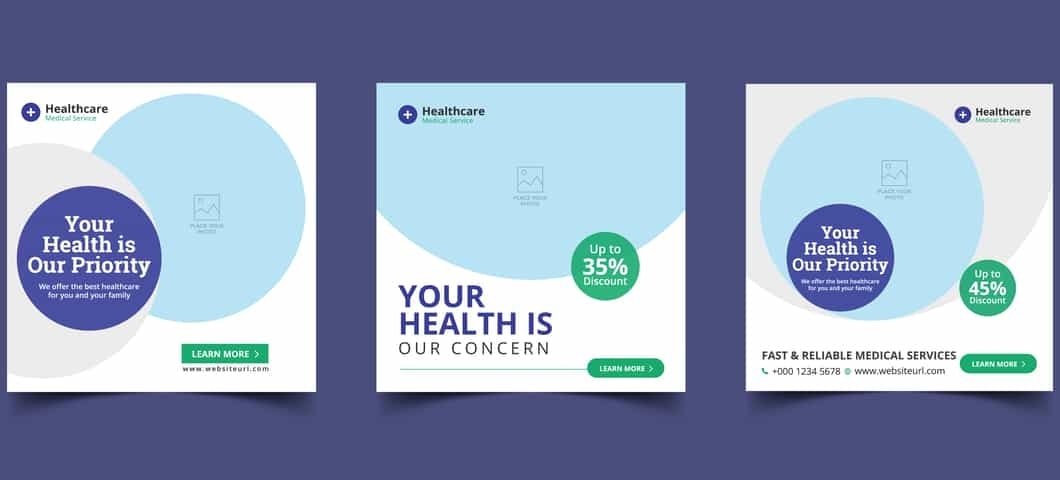How to build a successful marketing strategy for healthcare organizations? - A comprehensive guide for 2021
The number of healthcare options available to patients has greatly increased. These patients no longer feel a need to go to the nearest hospital, the practice closest to their home, or a healthcare establishment with many sites in the community, as they can access all the information they need online. This is why it is so critical to have a healthcare marketing plan with a budget that will help you attract and retain patients in your area.
Because of the COVID-19 pandemic in 2021, the healthcare industry will be working to recover for several years. The relevance of customer reassurance in healthcare marketing will rise. For those who worry about engaging with patients, one chance is to ensure that their vaccinations and other preventive measures are up to date.
This article will present the key points of the medical marketing plan building process. Doctors and medical institutions can use online medical marketing to provide crucial information to their patients.
Why is Healthcare Marketing Strategy Necessary for Your Business?
In the face of increased competition, healthcare providers must employ an efficient marketing approach. The United States has more than 780,000 healthcare enterprises, and the number is continually increasing.

Because patients will have to see a doctor, why not you? Healthcare marketers must resolve this conundrum for doctors, hospitals, clinics, and other medical organizations. Due to the rising availability of healthcare services, folks who had never been to a doctor’s office are now able to go for a consultation. The marketplace has therefore grown increasingly competitive, making it necessary for healthcare providers to promote their services.
The goal of your marketing efforts should be to reach new patients, so use your website, social media, and ensure that your healthcare marketing methods can connect you with these individuals. When healthcare marketing strategies are built using secure technology and designed to foster interactions with patients, it’s especially crucial to keep ethics in mind.
The survey results say that patients are more trusting of healthcare practitioners and feel more comfortable seeking them out when medical difficulties emerge when they are familiar with the doctors. A way to make your offerings more apparent is to engage with your target audience. It is possible to complete a transaction at the first consultation with a business if you get credit for your team’s success, celebrate staff members, and run social media advertising campaigns.
Healthcare marketing strategy regulations
Medical marketers must follow numerous federal healthcare marketing laws and regulations. The most vital elements are:
-
HIPAA — a law mandating that healthcare information and electronic billing must be accessible across the industry. HIPAA was created to safeguard the privacy of patients.
-
GDPR: This is a law first introduced in the EU and that has since been adopted in the US. The legal code lays out seven guidelines to follow when handling the personal information of others. It controls the gathering, sorting, structuring, reorganizing, consulting, using, distribution, compilation, limitation, erasure, and storage of personal information. The patient privacy policy also keeps doctors, hospitals, and marketers from using patient information.
-
CAN-SPAM Act: This legislation covers the extent to which doctors and healthcare marketers may give information via email. In addition, patients have the option to refuse personal emails from their doctors or other medical organizations.
A thorough healthcare marketing plan is even more essential because of these rules. Providers must comprehend the complex nature of healthcare digital marketing and keep up with the latest healthcare marketing trends in order to maintain a consistent flow of patients.
Best healthcare marketing planning strategies for medical organizations in 2021
Doctors, healthcare networks, and healthcare marketing experts all need to invest in healthcare marketing. You may need to hire additional personnel and expect to allocate more money than you have previously. While it may seem like a lot of work, it is well worth it in the end, since you may grow your client rapidly. One advantage of our services is that we offer our best goods to add to any successful healthcare marketing campaign.
#1 Stay consistent with branding

Even if you’re certain your skillset is a cut above that of other healthcare professionals, doctor practices, or hospitals, you may still wonder if you are alone in this regard. But you must identify your brand’s identity. Is there anything special about your medical network, medical facility, or healthcare practice? Do you treat patients badly? Is your office kid-friendly? An environment resembling a spa? Even if each member of your medical team has an important role, what makes them memorable is the attribute that separates them from the rest.
Your brand may take some time to determine what works for it. But as you begin to understand how to best represent your business, your healthcare marketing approach will come together seamlessly. Here are a few ideas for presenting yourself in a captivating way:
-
Your attitude to your patients: People who are dissatisfied with the way they’ve been treated in the past will be drawn to this individualized approach.
-
Your team of helpful associates: Many patients are frustrated by being shoved through a system where they believe that they are being handled coldly, without the consideration of their bedside manner. A kind, compassionate, and dedicated staff can be a major focus of your healthcare marketing efforts.
-
A well-equipped facility: This relates well to patients who previously had limited access to top-notch services. When compared to what they are used to, patients will have a better impression of the institution if it has a clean, modern, and visually appealing look. People in the present era are seeking out quick, efficient facilities with the latest possible therapies.
-
Online events: Particularly in an era of serious health concerns, you might gain exposure for your organization or profession by presenting to audiences of 1:many and responding to queries in real-time. Patients in distress want to know that their doctor cares about them, even when they can’t be physically present.
#2 Develop a mobile-responsive and adaptable healthcare website
When a website responds to the size of the device being used, it ensures a consistent experience no matter the screen’s size. Search engines, such as Google, will use this when evaluating your site to ascertain how high you rank.

Google prioritizes competitors who have a site tailored to mobile users. A responsive website is a preferable choice for mobile digital healthcare experiences in general. Even if you already have a mobile-friendly site, you should make sure that your information and images load fast on all devices.
#3 Optimize for prospective patients search engine results
It’s a great tool for boosting your medical business or hospital network’s rankings in search engines. Yet, despite how difficult it is to comprehend, most marketers fail to comprehend it. You will not rank #1 on Google among local doctors by inserting the word “healthcare practice” 100 times throughout your page.

A big aspect of SEO is to make use of the most appropriate, precise, and relevant keywords and phrases so that Google can comprehend your healthcare organization’s websites and rank you for the ideal, relevant, and appropriate healthcare-related search terms (e.g., medical conditions, compare health covers, healthcare professional treatment of any type). Google, however, prioritizes readability over everything else, therefore you should also use these words naturally in your article. All of these things are just the beginning of search engine optimization in healthcare, which includes the following:
- Having your healthcare website pages linked to each other.
- Finding quality health websites that link back to your site.
- The management of your web index or sitemap.
#4 Optimize patient experience
The most crucial optimization to remember is not to lose sight of User Experience. You do not want to put the time and effort into bringing users to your site just to have them depart because they were put off by the user experience. To provide your visitors a pleasant experience, you should make sure your site is straightforward to navigate with vital information easy to find and access.

It’s just as crucial to see a return on your healthcare marketing efforts after patients have visited your website as it is to have a successful marketing campaign in the first place. Make sure your site clearly explains who you are, without forcing the patient to hunt for it.
Next, ensure the navigation is uncomplicated and straightforward, enabling patients to easily discover the information they are searching for. For many customers, the “contact us” link is an important part of your website as it makes it much easier for them to get in touch with your office and schedule an appointment.
#5 Employ Paid Search Ads
These advertisements are sponsored and appear before the set of search phrases is triggered. You can control your budget and select what you’re prepared to spend to maintain your site near the top of the search engines with pay-per-click advertising (also known as PPC or sponsored search).

Some patients go as far as five to seven kilometers to see a doctor or find a practice. PPC advertising can be created to target people on a very local level, and they’ll only be delivered to those in the area. Creating local-focused keywords and phrases will help you expand your audience. Compared to normal display advertising, your ROI will be higher because you just pay for clicks, not impressions.
Be sure your team continually analyzes your targeting. Every element of your marketing must be subject to A/B testing in order to identify which assets or calls to action generate the highest conversions. You must also take this step to make sure your keywords are accurately targeting the demographic you are aiming for.
#6 Use social media to improve your brand
Too many hospitals and medical offices count on organic social networks for most of their digital marketing strategy. To grow your brand and keep patients informed, it’s a good idea to utilize organic social media and post straight to Facebook, Twitter, and YouTube.
It is, however, not your only option. Paid social media advertising is the most effective technique to reach the individuals who could be interested in your services. Unless they are already connected with or employed by the organization, few are likely to share the group’s social media messages.
The company page boost button is only one of the options for paid social media. Strategy and budgets are both needed when you target a certain audience with PPC or display advertising.
#7 Use marketing content

Content marketing is one of the most critical elements of marketing in 2021. Collaterals like videos, blogs, and social media posts are all considered part of this sort of marketing. One way to build brand awareness is to distribute this information online, which will enable businesses to more easily acquire a specific target audience and keep current customers happy.
Healthcare content marketing serves a vital role in healthcare public relations and medical marketing since it helps healthcare providers gain authority in their area. Healthcare marketing would be very difficult without social media.
- Some healthcare content marketing examples are:
- Tips for health
- Blog articles about pertinent topics.
- personal interviews with doctors
- Podcasts
- Virtual Q&A sessions
- Client testimonials
#8 Request patient reviews
It is usually just the patients who were very impressed (or terrified) who take the time to review their experiences. Unless you request feedback from patients about your healthcare services, you’re leaving the chance to showcase patients’ good reviews of their office visits.

We advocate using automated reviews as part of your Healthcare Marketing plan to deal with complaints. Here is a quick summary of the advantages of automated reviews: Patients at the office utilize a computer or tablet to assign a number between 1 and 10, rating the quality of their service. A follow-up email that automates the request for the patient to post a review on their site is sent when their health scores are high. The positive feedback is prominently shown on your website, so it can help neutralize any negative feedback that’s posted elsewhere online.
Bad scores offer healthcare facilities or hospitals the opportunity to ask patients to elaborate, which will ideally help them solve the problem. You are unable to do anything when patients submit reviews on websites that reflect poorly on your practice. Even though you may not be able to follow up with every complaint, you can still show you are working on the situation by dealing with any patient comments. By having a follow-up with patients, it is possible to inspire them to revise their review and update it to indicate the problem was handled promptly.
#9 Consider traditional media alternatives
Despite being highly popular for marketing, it is difficult for many hospitals, healthcare groups, and medical practices to spend money on traditional advertising sources like radio, television, banners, and newspapers. Large-scale investments of this sort must be made with caution, as it is important to be mindful of where you are spending your money to ensure you will receive the best benefits. Choosing healthcare media buyers who you can trust to make decisions on your behalf is the most reliable approach to ensure that your adverts reach the appropriate people at the right time.
If you become an authority in your medical specialty, patients remember you. PR is a great tool for healthcare brands, and it’s free advertising when you contact the right media source when you have something to discuss. A public relations group can assist in promoting your name and message so that people know about your contributions to the community.
One way to better your reputation as a doctor is to produce a press release to notify the public about your positive works. Local news interviews on your community’s health care issues will increase your local public trust. The attention of other healthcare experts can be grabbed with an article that covers your product and its benefits.
#10 Work with Healthcare Marketing Agency
Achieving a balance between your online medical marketing and patient care, as well as your professional development, is no simple task. Working with a healthcare marketing agency that can help you interact with patients among all digital platforms is an essential step to ensuring your ROI in all areas. Healthcare marketing is a specialized communications niche. Your healthcare marketing agency may be able to assist you with several of the areas you may not have considered. For example:
- Build a digital marketing app that enables patients to book appointments and get basic questions answered.
- A long-form educational video that covers frequent problems found in your practice should be created for your social media.
- Targeting new patients through more casual channels, such as social media, and connecting with patients through pop culture
#11 Monitor Your Healthcare Marketing Plan
To ensure your healthcare marketing strategy succeeds, you must monitor it. Make your plan even more efficient by tracking its performance with your choice analytics EHR software development solution and altering it based on data collected to predict when it will do better with an alternative approach. Google Analytics is simple to put into place and use. Use quantifiable measurements.
An accurate measure of your campaign’s success is derived from knowing your website’s visitor numbers, landing page conversion rates, and revenue. By using data instead of your intuition, you’ll get the best results. But, you’re a physician or a physician, you know that already.
Final Words
Healthcare marketing is getting increasingly competitive, and marketers must know how to turn leads into patients.
As technology continues to advance, healthcare digital marketing becomes more varied and intricate. The strategies mentioned above should be combined in a way that sets them apart from others. Healthcare providers must be aware of the importance of reputation and authenticity while developing a marketing strategy. As crucial as wearables and location-based SEO are to tech marketing, user-generated content (UGC) is critical for social and word-of-mouth marketing.
New Posts

How To Set Up Google Analytics 4 For Your BigCommerce Store






